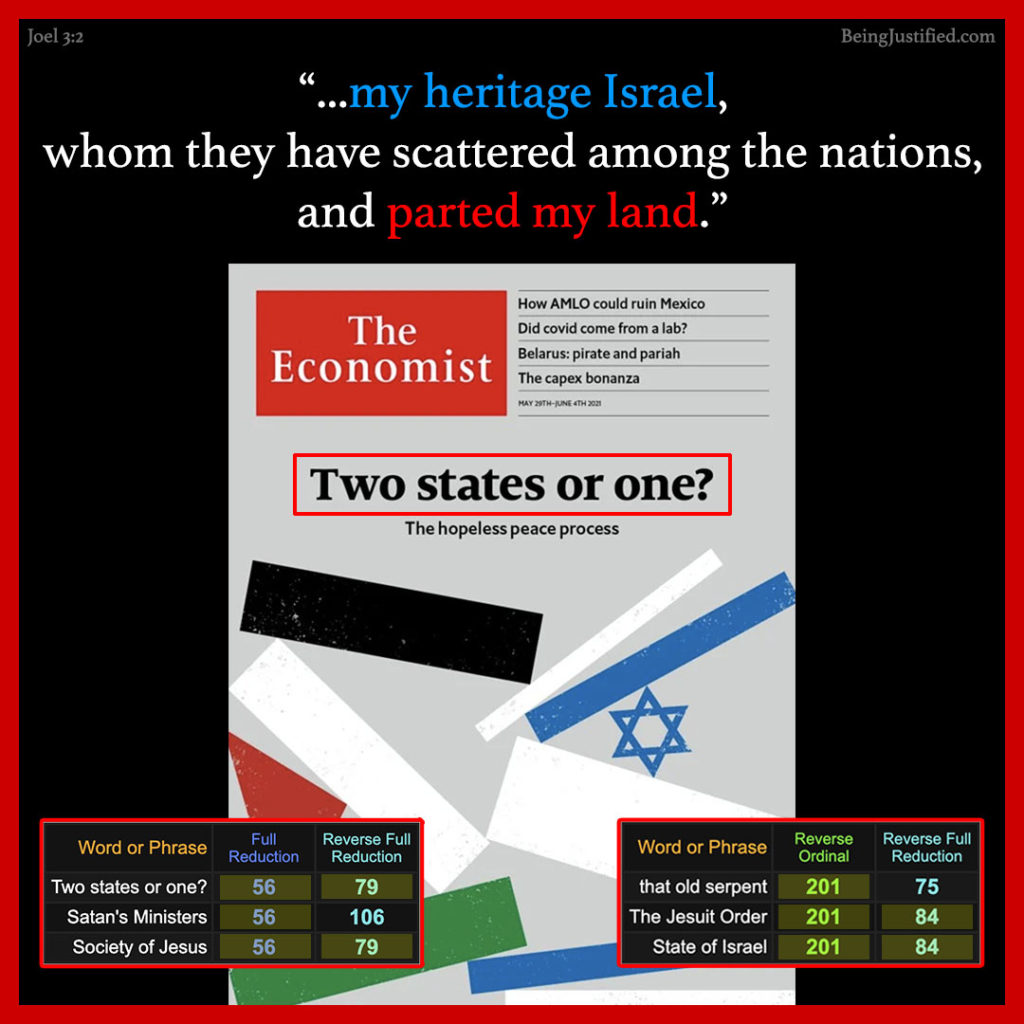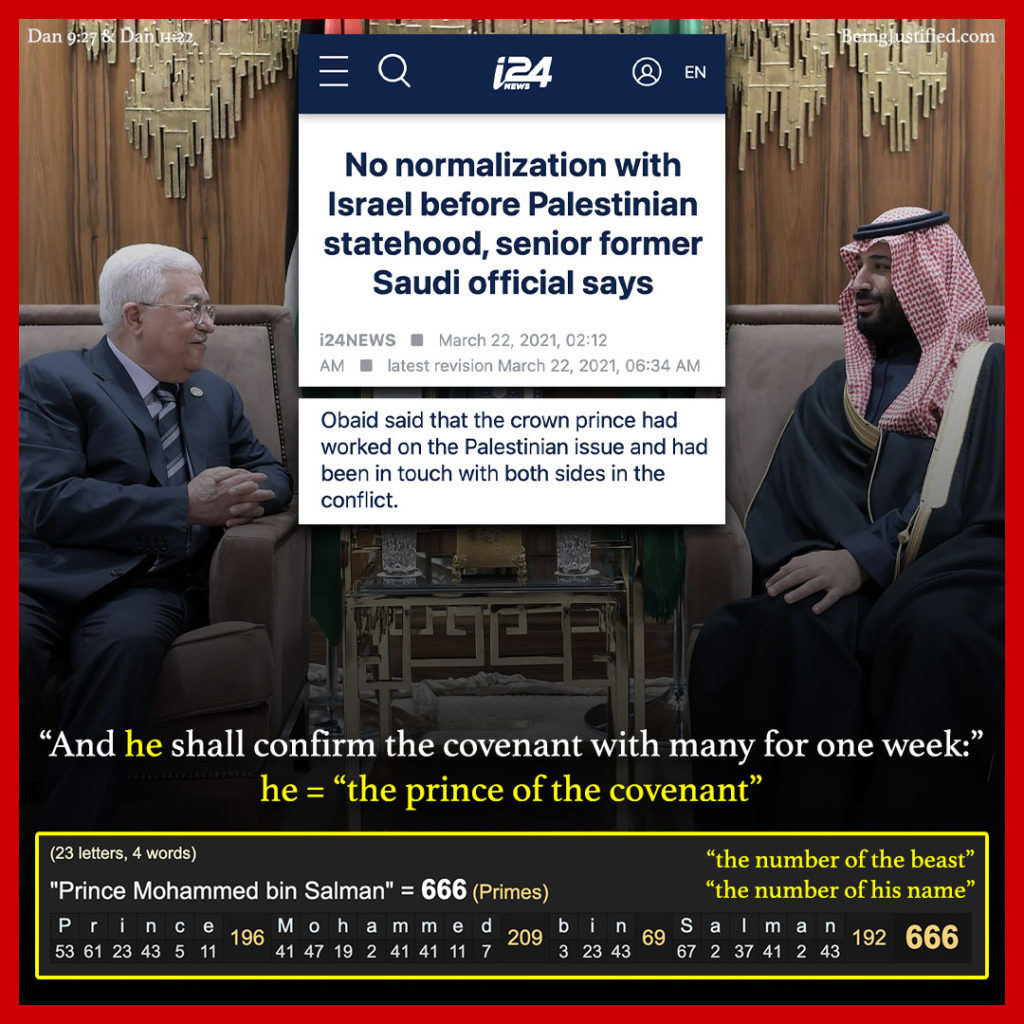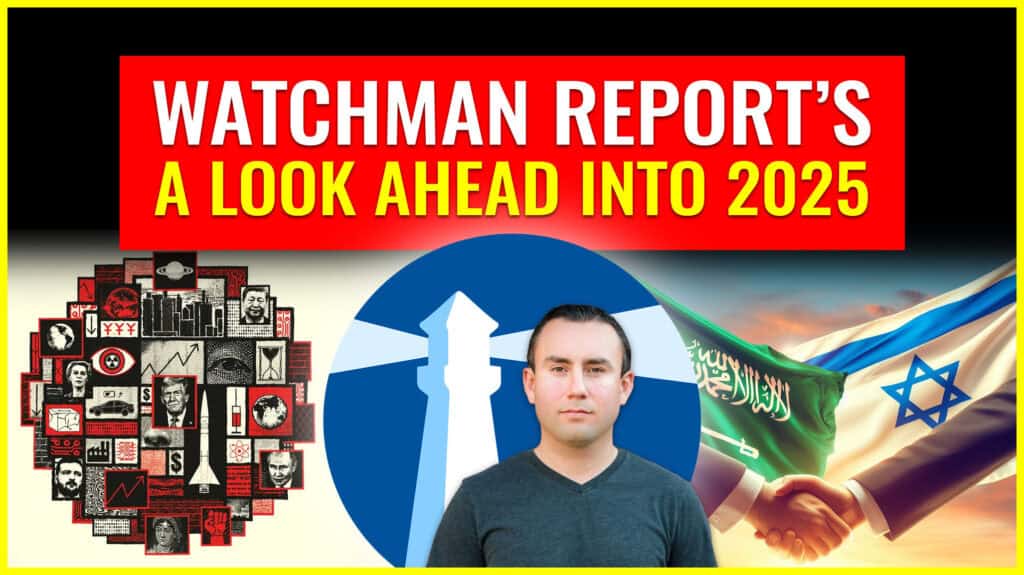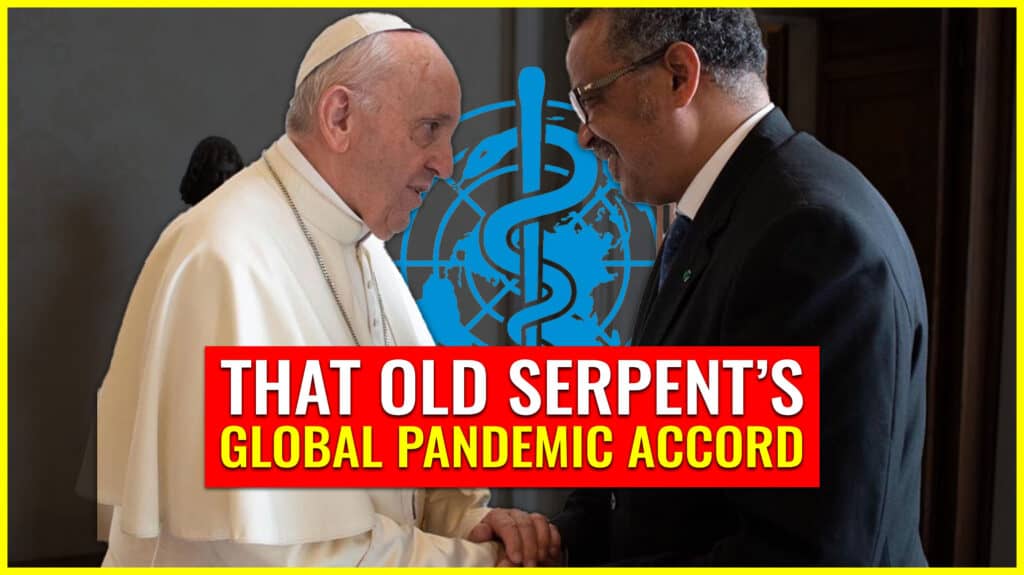Scripture to consider before the news:
“I will also gather all nations, and will bring them down into the valley of Jehoshaphat, and will plead with them there for my people and for my heritage Israel, whom they have scattered among the nations, and parted my land.”

This report will focus on the coming two-state solution that WILL happen, as it is written by Joel the prophet that will part God’s land of Israel.
A prerequisite that has to be in place before “the prince of the covenant” (Prince Mohammed bin Salman of Saudi Arabia) normalizes with Israel to start the final prophetic week for Israel, the 70th week spoken of by Daniel the prophet.

Now unto the news:
Israel and Palestine. Two states or one? The peace process has become an obstacle to progress.
Have more time and effort ever been devoted to peace to so little effect? America began overseeing talks between the Israelis and Palestinians three decades ago. But the Holy Land remains contested by two peoples who cannot bring themselves to live together. The fighting in May that left 242 Palestinians and ten Israelis dead accomplished nothing except to clear the field for the next round of fighting.
The peace process set up in the Oslo accords in 1993 aims to create two states that agree to disagree—using land swaps, security guarantees, a deal to share Jerusalem and a limited “right of return” for Palestinians. Israel’s prize was to be a thriving democracy and a sanctuary for Jews; for Palestinians it was the promise of self-rule. At times, peace has been tantalisingly close, only to recede again amid mutual recrimination.
Today, however, instead of being a pathway to peace, the two-state “process” is barring the route. Everyone pretends that peace is still on the agenda when, in reality, it is not. That is a formula for strife. Almost everything that matters can be deferred with the promise that, one day, it will be resolved in a deal that is perpetually over the horizon. It is also a formula that, by default, leads to a single state.
The idea that the two-state framework is harmful will not come as news to the Palestinians. Under it, the vision of a viable, contiguous, sovereign Palestine has receded. Palestinian territory in the West Bank is an archipelago in an expanding sea of Israeli settlements that are illegal under international law. Gaza is a solitary island, cut off by an Israeli and Egyptian blockade. The Palestinian Authority was supposed to be a government in waiting. Young Palestinians look on it as the agent of Israel’s occupation, even as they laud Hamas, the violent Islamist group that rules Gaza, for standing up to Israel.
In place of the stagnant two-state effort, the new Palestinian vision is to demand individual rights in one state. Those in Gaza and the West Bank resent needing Israel’s permission (often withheld) to travel to see their families. The recent fighting was fuelled by a dispute over property in East Jerusalem, where most Palestinians are mere “residents”. Even Israeli Arabs complain of inequality and rose up during the fighting in Gaza.
That leaves Israel in a quandary. It has thrived under Oslo. gdp per head has grown by over half in the past 30 years. Its Iron Dome missile-defence system largely shields it from Hamas’s attacks. A divided, weak Palestinian leadership suits Binyamin Netanyahu, the prime minister, who shows little interest in the Palestinians. And it’s not just him: the conflict did not feature much in any of the four elections Israel has held since 2019.
This cannot last. The Oslo figleaf lets Israel claim that the occupation will be undone in a final deal. As the interim power in charge, it has no duty to extend full rights to the West Bank. But 54 years after the six-day war, the idea of a temporary occupation rings increasingly hollow.
Without hope of an agreement, Israel’s critics have begun to talk of a “one-state reality”. This challenges Israel: as the Holy Land has as many Jews as Palestinians, it cannot remain both Jewish and democratic while permanently controlling all of that territory. Many critics of Israeli policy, including some liberal Jews, now compare the Palestinians’ treatment to apartheid.
The Palestinian demand for rights is resonating abroad, not least in the halls of America’s Congress. By allying Israel to the Republican Party, Mr Netanyahu has helped make the Palestinians part of America’s culture wars. Progressives in the Democratic Party have started to declare that Palestinian lives matter.
America is Israel’s most important ally. True, American aid matters less than it did and Israel now produces most of its own advanced weapons. It has relations with more countries, including its Arab neighbours through the Abraham accords. Yet if it drifts away from Europe and America and towards countries like Russia, China and populist India, it will be a blow to Israel as a Western, liberal and democratic ideal.
More important, Mr Netanyahu’s “anti-solutionism” leaves his country less able than ever to navigate a future with the Palestinians. His embrace of the Jewish far right makes eruptions more likely even as it fires up militant Palestinians—witness the recent communal violence in Israeli cities. The wall that seals off Israel from the West Bank has led to deeper distrust between Arabs and Jews. The settlements, once thought negotiable, have become permanent obstacles to peace.
The status quo has served Israel well but is not sustainable. Sooner or later there will be a reckoning that requires a new formula for living next to the Palestinians. Adhering to Oslo while undermining it in practice feeds the reality of one state—because it makes two states harder to realise.
Instead of imposing peace in one top-down stroke of diplomatic brilliance, a more realistic aim would be to build it patiently from the bottom up. The guiding principle should be to focus on the human and civil rights of Palestinians. Israel will not grant Palestinians full rights tomorrow. But it can make its Arab citizens more equal by devoting resources to their communities. It could make the administration of Jerusalem more inclusive, so that tiffs over fencing do not escalate into war. It must take more responsibility for the suffering in the West Bank and Gaza—and work harder to alleviate it.
A focus on rights also makes Palestinian leaders more accountable. They cannot easily demand rights from Israel that they deny their own people. Mahmoud Abbas is in the 17th year of a four-year term as president. His Fatah party is sclerotic. Hamas tramples the rights of its people, including women and minorities. Better Palestinian leaders are a prerequisite for peace.
Abandoning Oslo carries risks, obviously. Unbound, Israeli settlers might push farther into Palestinian territory. Hamas, which wants a single state in which Palestinians would outweigh Jews, might redouble its resistance. But today’s path is even riskier.
Peace always starts by acknowledging reality. It takes root by improving lives and renewing politics. That can flourish into something new. Then, one day, the parties can start talking again about a deal, whether of one state or two.
Scripture to consider:
“They have healed also the hurt of the daughter of my people slightly, saying, Peace, peace; when there is no peace.”
There is no peace to “this present evil world” on a “course” to the kingdom of the beast and his mark to buy or sell.
Then the Prince of Peace will return to start his everlasting kingdom from Jerusalem. Amen!





